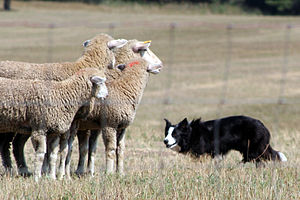You Can’t Lie to Your Dog!

Of all mammals, dogs have evolved into super human readers! Scientific studies reveal that they even exceed our closest relatives, the Chimpanzees, when it comes to understanding our communication signals. In other words, during the domestication process, dogs have developed unique skills to decode our intentions and emotions or know when we’re attempting to communicate with them, as well as young infants.
Humans and dogs have evolved together for a very long time and this long-term relationship has been mutually beneficial. Dogs have been companions and playmates to humans, as well as alarm systems, hunting aids and garbage disposals. Humans have provided food, shelter and in many ways have greatly contributed to the survival and development of dogs all over the planet.
Without any previous training, even young puppies are better capable of understanding human pointing gestures than wolves, even when the wolves have been raised by humans from birth. In similar testing situations, Juliane Kaminski, from the Max Plank Institute, showed how chimpanzees completely ignored the human who was pointing at an object that would have led them to a rewarding treat, where dogs immediately used that information to their advantage. Certain breeds however seem to be better than others as suggested by a study from Márta Gácsi, from Eötvös University in Hungary. The more pressure there is on the breed to collaborate with humans in specific tasks, like herding sheep, the better they are at paying attention to human signals. 
It makes sense that if your survival depends on another species, it would be important to develop ways to understand that species as much as possible and be able to anticipate its intentions. Whether they work closely with their human, or simply share their life as a pet, interpreting human emotions and body language, enables dogs to stay out of harms way, be up and alert when it’s time to work and know when there’s an opportunity for a good belly rub.
Clearly, Chimpanzees or wolves would have very little benefit in reading humans (except maybe to stay away from them). Further research suggests that cats also pay attention to our body language and that some are also capable of reading our pointing gestures, so we may find out that a few domesticated animals could have developed similar abilities over time.
If we intuitively knew all along that our furry companions could understand us, scientists have now confirmed that they can read us like no other! More to come on dog/human communication…
Jennifer Cattet. Ph.D.


Leave a comment